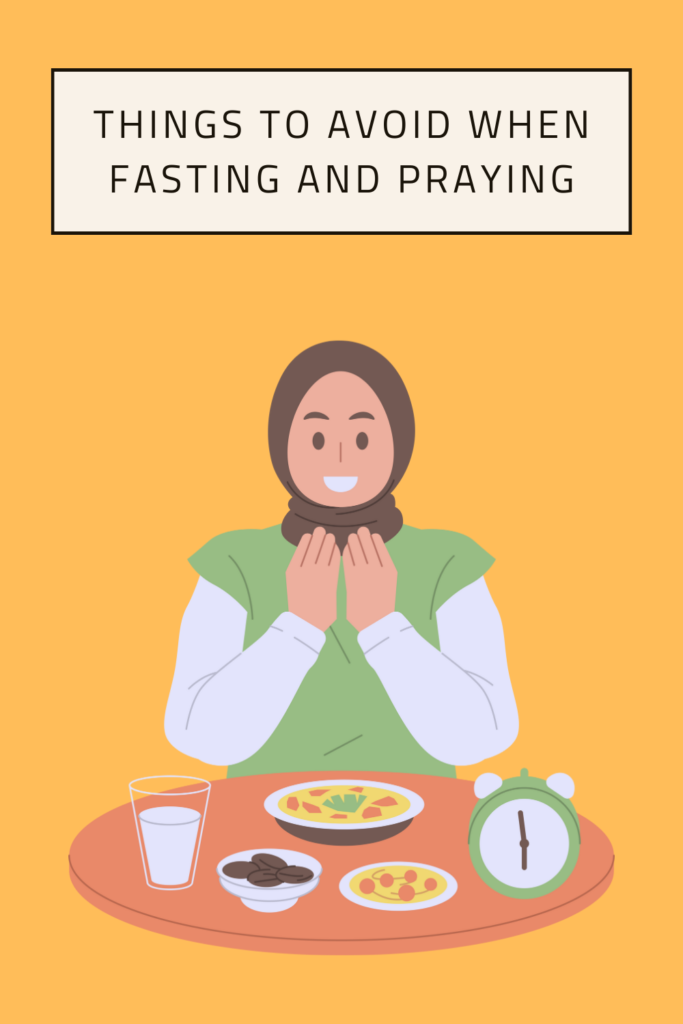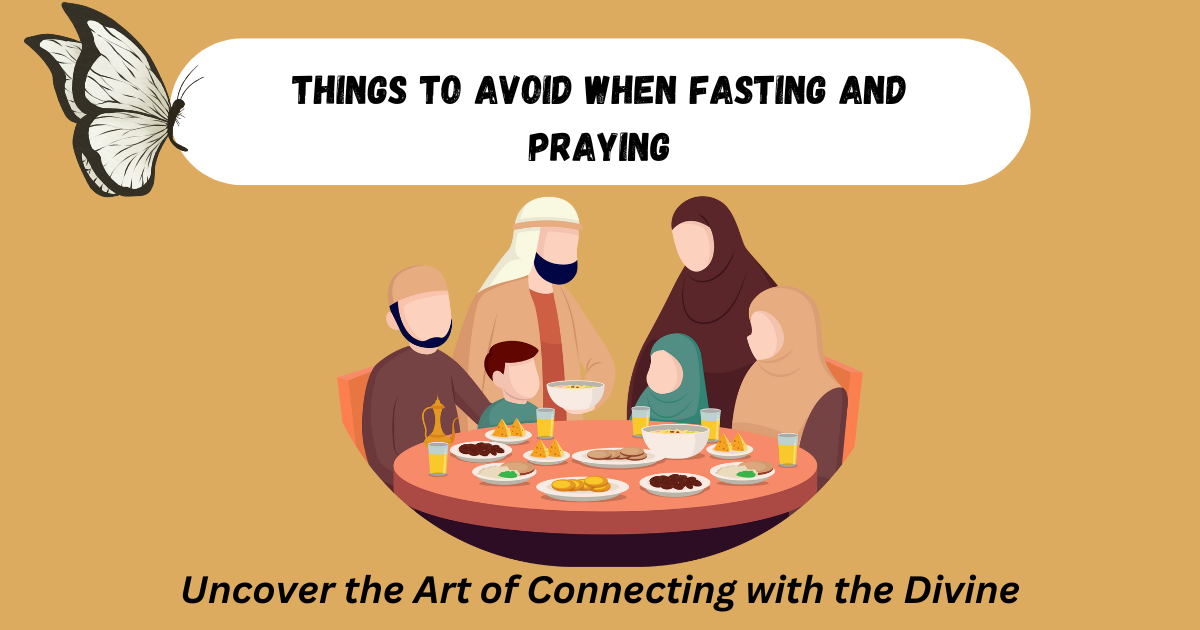Welcome to our blog post on the topic of “Things to Avoid When Fasting and Praying.” Fasting and praying are powerful practices that have been embraced by various cultures and religions for centuries. They can bring about profound spiritual growth and personal transformation.
However, to make the most of this spiritual journey, it is equally important to be aware of the potential pitfalls and mistakes that can hinder your progress.
In this article, we will explore the key things to avoid when fasting and praying during your fasting and praying experiences to ensure a fruitful and meaningful connection with the divine. Let’s dive in!
What is fasting?
Fasting is a deliberate and voluntary practice of abstaining from or reducing the consumption of food and sometimes drink for a specific period. It is often done for religious, spiritual, health, or cultural reasons. Fasting has been a part of human history and is observed in various forms by different cultures and religions around the world.
During a fasting period, individuals refrain from eating certain foods or consuming any food at all for a set duration. Some fasts may involve only water or liquids, while others may permit certain types of food or specific times for eating. Fasting can vary in duration, from just a few hours to several days or even longer, depending on the purpose and tradition behind the fast.
Fasting is believed to have various benefits, such as promoting self-discipline, spiritual reflection, detoxification, and some potential health advantages. However, it is essential to approach fasting responsibly and consult with a healthcare professional, especially if undertaking extended fasts or if one has pre-existing health conditions.
“Fasting and praying are the threads that weave our intentions into the fabric of the universe, creating a tapestry of self-discovery, clarity, and spiritual renewal.”
Benefits of Fasting And Praying
Spiritual Growth:
Fasting and praying can deepen one’s connection with a higher power and facilitate a more profound spiritual experience.
Self-Discipline:
Engaging in fasting and prayer requires self-control, fostering discipline and willpower.
Mental Clarity:

Fasting can lead to mental clarity and improved focus, as the mind is not preoccupied with food-related thoughts.
Detoxification:
By abstaining from certain foods, fasting allows the body to detoxify and cleanse itself.
Weight Management:
Controlled fasting may support weight loss and help regulate metabolism.
Emotional Cleansing:
Fasting and prayer can aid in emotional healing and inner peace.
Empathy and Compassion:
The experience of fasting may enhance empathy and compassion for those in need.
Increased Gratitude:
Fasting can cultivate a sense of gratitude for the abundance of food and blessings in life.
Enhanced Introspection:
During fasting and prayer, one may gain insight into their thoughts, emotions, and behaviors.
Community Bonding:
Fasting and praying together can foster a sense of community and shared experience among believers.
Things to Avoid when Fasting
When fasting, it’s crucial to avoid certain behaviors and practices to ensure a safe and effective fasting experience. Here are some things to avoid:
Overeating before and after fasting:
Don’t indulge in excessive eating before starting a fast or breaking it, as it can lead to discomfort and negate the benefits.
Consuming unhealthy foods:

Avoid consuming unhealthy, processed, or high-calorie foods during your eating window, as it can undermine the purpose of fasting.
Dehydration:
Do not forget to stay hydrated during fasting, as it is essential for overall well-being.
Intense physical activities:
Avoid rigorous exercises during prolonged fasting, as it can cause fatigue and put unnecessary strain on your body.
Overextending the fasting period:
Respect your body’s limitations and avoid excessively long fasting periods beyond your capability.
Stress and anxiety:
Try to minimize stress and anxiety during fasting, as it can affect your overall well-being and disrupt the fasting process.
Ignoring medical conditions:
If you have underlying medical conditions, consult a healthcare professional before fasting to ensure it’s safe for you.
Excessive caffeine or stimulants:
Avoid overconsumption of caffeine or other stimulants, as they may impact your energy levels and disrupt your fasting journey.
Comparing with others:
Everyone’s fasting experience is unique, so avoid comparing your progress or results with others.
Neglecting spiritual aspects:
Fasting is not just about abstaining from food; remember to focus on the spiritual aspect and purpose behind your fast.
By being mindful of these things to avoid when fasting, you can make the most of your fasting experience and attain its potential benefits.
Conclusion
In conclusion, embarking on a fasting and praying journey can be a transformative and spiritually enriching experience. To make the most of this sacred practice, it is essential to be mindful of the things to avoid when fasting and praying.
Avoiding overeating, unhealthy food choices, excessive stress, and comparing oneself to others can ensure a smoother and more rewarding fasting experience.
Remember, fasting is not just about abstaining from food but also about cultivating a deeper connection with the divine. By steering clear of these pitfalls, we can embrace the true essence of fasting and praying – fostering spiritual growth, inner peace, and a closer relationship with the divine.
May your fasting and praying be filled with purpose, self-discovery, and profound blessings on your spiritual journey.

